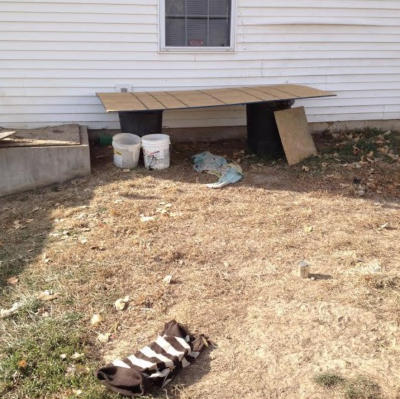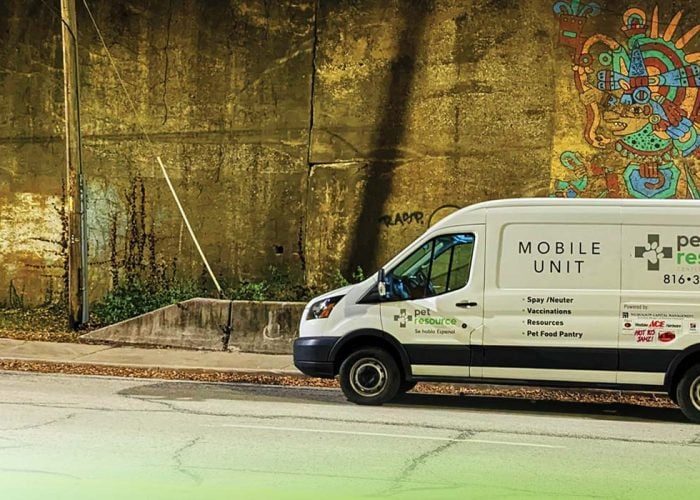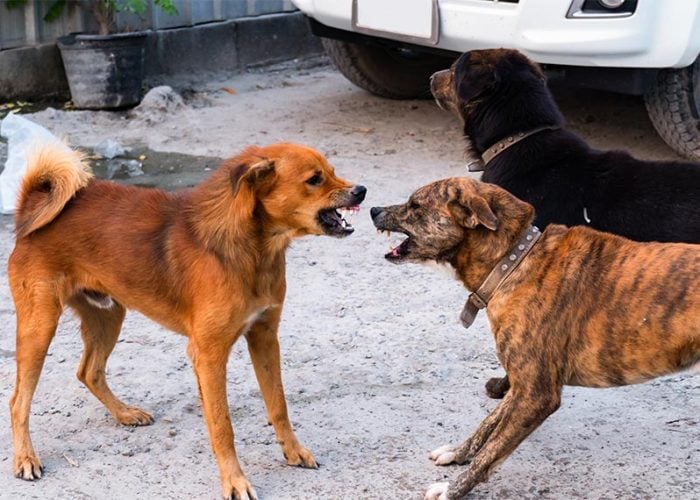Hello! Welcome to Pet Resource Center of Kansas City!
We’re a low-cost spay and neuter clinic located in Kansas City; our name indicates as much, so maybe you figured that out already. We focus on providing resources, wellness services, and education for all pet owners, but especially those in underserved communities. Looking over data from the past decade or so, there are 12 zip codes in the KC metro area that generate 80% of animal control calls. Doesn’t that seem disproportionate? It certainly seemed that way to us.
“They should have their dog taken away.”
If you work in animal welfare, this is a phrase you hear. You hear it on a regular basis. Lots of people have lots of opinions on how other people take care of their pets. And to some extent, that’s great: we wish more people were concerned about the welfare of pets. But there’s an assumption underlying that concern, and it’s rooted in judgment. The truth of it is, that judgment gets in the way of accurately assessing the pet’s situation. A dog comes in on a chain instead of a leash, or needs to be groomed, or the owner just looks too “poor,” and our hypothetical bystander believes that the dog should be with someone who can take care of it “properly.”
Well, that’s not how we do things.
 Here, look at this:
Here, look at this:
What does this look like to you? Someone reported this house to us as a place where an outdoor dog lived that might be in need of assistance. When I first saw this picture, it looked like a messy, dirty yard. And that’s what our outreach team thought at first, too. They didn’t see how an outdoor dog would have what it needs in that yard. But their job is to approach these situations without judgment.
See, people mostly want pets because of the companionship they provide, or for safety, or for security. Clients tell us all the time that they consider their pets to be part of the family. We know what that feels like; we consider our pets family too. Following that logic, it stands to reason that these people wouldn’t willfully mistreat their family, and certainly not by putting them on display outside with no food, water, or shelter for the whole world to see.
So our outreach team knocked on the door and talked to the owners.
 They were kind and nice, and sheepishly explained that they were trying to do the best they could with the resources they had. This is honorable, and in no way is a reason for judgment. Look back at that photo: they’d made a makeshift shelter by putting the pressboard over the two trash cans so that the dog could have shade. The buckets, though you can’t tell from that far away, have food and water in them. We gave them some food to help out, and a dog house. We had to wait ten minutes to get a photo of the pup in the dog house, because he was so happy that he didn’t want to poke his head out!
They were kind and nice, and sheepishly explained that they were trying to do the best they could with the resources they had. This is honorable, and in no way is a reason for judgment. Look back at that photo: they’d made a makeshift shelter by putting the pressboard over the two trash cans so that the dog could have shade. The buckets, though you can’t tell from that far away, have food and water in them. We gave them some food to help out, and a dog house. We had to wait ten minutes to get a photo of the pup in the dog house, because he was so happy that he didn’t want to poke his head out!
What we’ve discovered from our time working with low-income clients since 2002 is that the vast majority of them just need a little help. We try to recognize that a great many of us are one misfortune away from being “those people.” Rather than judging, we try to approach situations with the idea of being proactive. Coming to a situation with open eyes helps us understand what can make the situation better, and the first thing we learn is that judgment does absolutely no good.
The guilt, shame, and overwhelming worthlessness that people can feel when they’re down on their luck is compounded with these sorts of judgments. “They’re looking for a handout,” or “why can’t they just give their dog to someone who can take care of it?” Would you get rid of your family? I doubt it. And while asking for assistance for your family is nothing to be ashamed of, many people living below the poverty line have never reached out for assistance. Why? I bet you can guess.
So how do we solve this problem? It’s a fairly simple solution: be nice.
“Nice,” of course, can mean any number of things. For us, it means everything. From the call center staff being patient and diligent in every one of the over 200 phone calls they receive a day, to the front office staff working to get the extensive check-in process done quickly for the dozens of animals getting surgery that day, to the surgery team taking time to calm down anxious pets, to every single one of us being willing and able to answer any question a client has. This helps put clients at ease, whatever their experiences are with other organizations. It helps us have the conversations that we need to have with clients about what’s best for their pets, because the clients know we have their best interest at heart.

